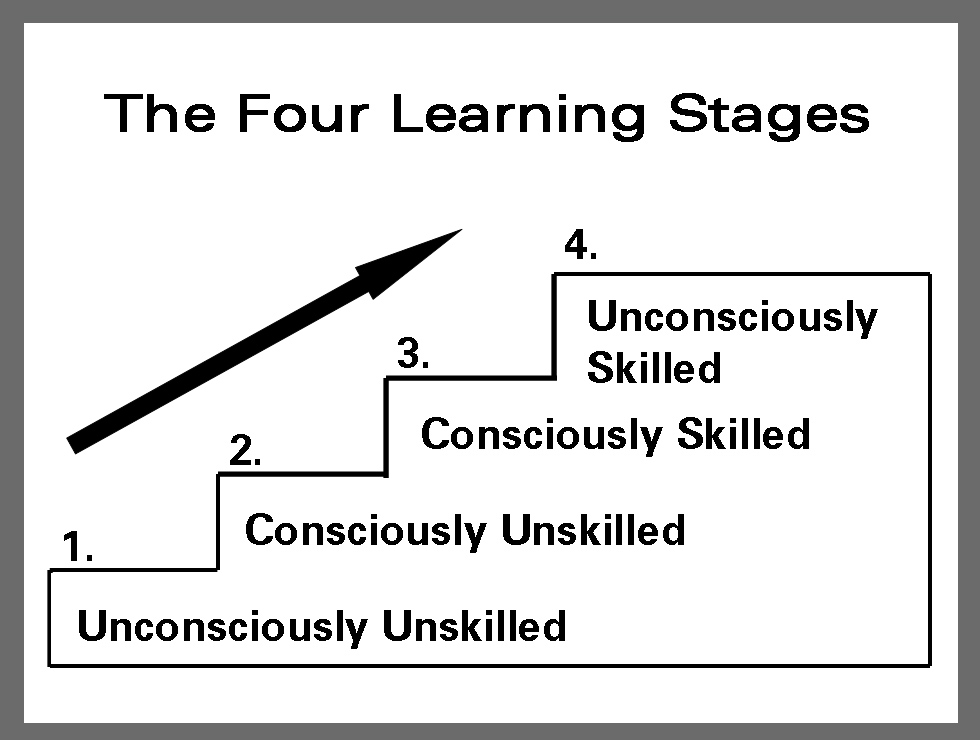 Question: How long does it take for people to learn and use the skills of listening and I-language? Are there any shortcuts?
Question: How long does it take for people to learn and use the skills of listening and I-language? Are there any shortcuts?
Answer: We’ll use the famous non-answer answer: it depends. It’s a matter of breaking habits, biting one’s tongue, stopping and starting over when you catch yourself repeating old patterns. I don’t know any shortcuts unless it would be checking your intentions as you go about your life. Knowing what you intend, it seems to me, pushes you in that direction. If you intend to understand what people say you may be able to transcend technique. If you intend to take responsibility for your thoughts and feelings you’ll express them in I-language (read “I-Messages”).
People who get good at things practice a lot. For instance, golfers and tennis players hit hundreds of practice shots between matches and pianists may practice scales for hours. You can practice as well. There’s no shortage of upsets to listen to, no dearth of problems to solve, conflicts to resolve, and plenty of opportunities to confront unacceptable behaviors. Give them a try and meanwhile, be gentle with yourself. Even great golfers shank them once in a while.
When learning anything new people go through a process that looks something like this:
Educators call it the curve of learning. (There’s also a curve of forgetting but I’ve forgotten it). When the new learning is about communication and problem solving skills there seem to be four stages or steps to the process. And you may have heard about these in a leadership training workshop you took in the past—these stages were created by Noel Burch, a former colleague of Dr. Gordon’s and the co-author of the T.E.T. (Teacher Effectiveness Training) book.
Okay, continuing on……most people begin at level one, a stage we call unconsciously unskilled. At this level they aren’t good listeners, they use roadblocks, send you-messages and attempt to resolve conflicts with arguments, fights and power games. At this point they don’t know there is another, much better way. They are unconsciously incompetent.
However, if they learn about interpersonal skills they move to a second level that’s called consciously unskilled. They know about listening and I-language. They know about the six step problem-solving/conflict resolution process and, if asked, might be able to name several of the roadblocks.
 Unfortunately, they don’t yet have any facility with the skills. Their listening is mechanical, their confrontations are often a mixture of You and I-Messages and these inadequacies render their attempts to solve problems and settle conflicts difficult or even futile. It is at this stage that some people feel so awkward and incompetent that they simply give up and go back to doing what they’ve always done. What they have always done may not work but has the comfort of familiarity and some people settle for comfort.
Unfortunately, they don’t yet have any facility with the skills. Their listening is mechanical, their confrontations are often a mixture of You and I-Messages and these inadequacies render their attempts to solve problems and settle conflicts difficult or even futile. It is at this stage that some people feel so awkward and incompetent that they simply give up and go back to doing what they’ve always done. What they have always done may not work but has the comfort of familiarity and some people settle for comfort.
However, others are willing to go through the discomfort and get to level three, consciously skilled. They have to think about it but they can now listen effectively, speak in clear I-language and make the no-lose conflict process work. However, they may feel phony, their “skills” are techniques and they know it.
A young man caught between being consciously unskilled and consciously skilled sent us the following e-mail about his efforts:
“What is hard, especially for me, is something called Active Listening. You just listen and repeat to the person what you think he or she is communicating to you. At this stage this still feels mechanical to me, like I’m just a parrot repeating what they say. But the more I do it the less it’s starting to seem like a mechanical device, and the more natural it’s becoming.
At first I had to fight the impulse to ‘fix’ what’s wrong with the person with the problem. But this fixing means that while the person is telling me the problem inside I’m thinking about the solution and only half listening to them. I’ve gotten past that stage now and I’m actually just listening. But now I’m so concerned with paraphrasing what they tell me that I’m not freely listening either. But every time I do it I get better.”
Can you hear the confusion and awkwardness in this message? This young person has run smack into his worst enemy: his conditioned responses. However, he is fully aware of his shortcomings and, if he doesn’t give up, will undoubtedly move to the next and final level: unconsciously skilled at which point skills disappear.
By that we mean that unconsciously skilled people simply tune in to others’ problems and, without thought, communicate their own internal states or conditions in I-language. When there are conflicts unconsciously skilled people immediately think in terms of unmet needs and how to involve everyone affected in meeting them. These people have a new set of conditioned responses as automatic as their old ones were. The difference is that their new responses bring people closer, generate friendships and foster a productive, healthy and mature relationships.

